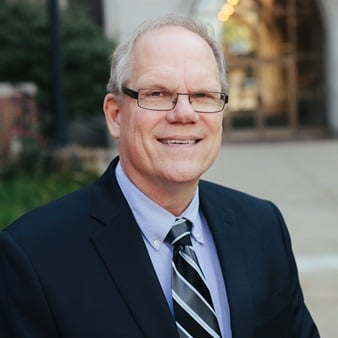Daily Devotional | The King of Peace
Monarchs often have many titles. For example, King Charles III of England is officially His Majesty Charles the Third, by the Grace of God, King of Antigua and Barbuda and His other Realms and Territories, Head of the Commonwealth.
In Hebrews 7:1–17, we learn of several titles that Scripture assigns to Melchizedek, the king and priest who greeted Abraham after the battle of the kings described in Genesis 14. His name meant “King of Righteousness,” and according to Genesis 14:18, he was king of Salem (probably Jerusalem). Salem is the word for shalom or peace. He was also called “priest of God Most High.” Psalm 110:4 (quoted in v. 17), which is considered a Messianic prediction, says the Messiah will be “a priest forever, in the order of Melchizedek.” The author of Hebrews points to Psalm 110:4 as proof that Jesus is superior to the Levitical priests of the Mosaic Law.
If you read the description of Melchizedek in Genesis 14, you will notice that he appears suddenly, without giving any record of his origin, family descent, or successors. Verse 3 explains that in this way, he resembles the Son of God. Because there is no record of his genealogy, it appears as if Melchizedek, like Jesus, “remains a priest forever.” There is another distinction that sets Melchizedek apart from the Levitical priests. He received a tenth of the plunder from Abraham, whereas the Levitical priests descended from Abraham and received tithes from the Israelites. It seems to symbolize that the Levitical priesthood served Melchizedek (vv. 9–10).
The writer highlights a limitation in the Mosaic Law. The sacrifices made by priests could never make someone perfect (v. 11). Psalm 110:4 promises a new way. Jesus, our High Priest, does for us what the Law could never do. He is our peace (Eph. 2:14).
Describe the key differences between Jesus and priests. Why does this distinction provide great assurance for us?
With wars and rumors of wars, peace seems elusive today. And yet, You, our Lord are the Prince of Peace. Give Your people that divine shalom no matter the circumstances. We place our hope in You and find peace in Your holy name.
About the Author

John Koessler
Dr. John Koessler is Professor Emeritus of Applied Theology and Church Ministries at Moody Bible Institute. John authors the "Practical Theology" column for Today in the Word of which he is also a contributing writer and theological editor.
View More